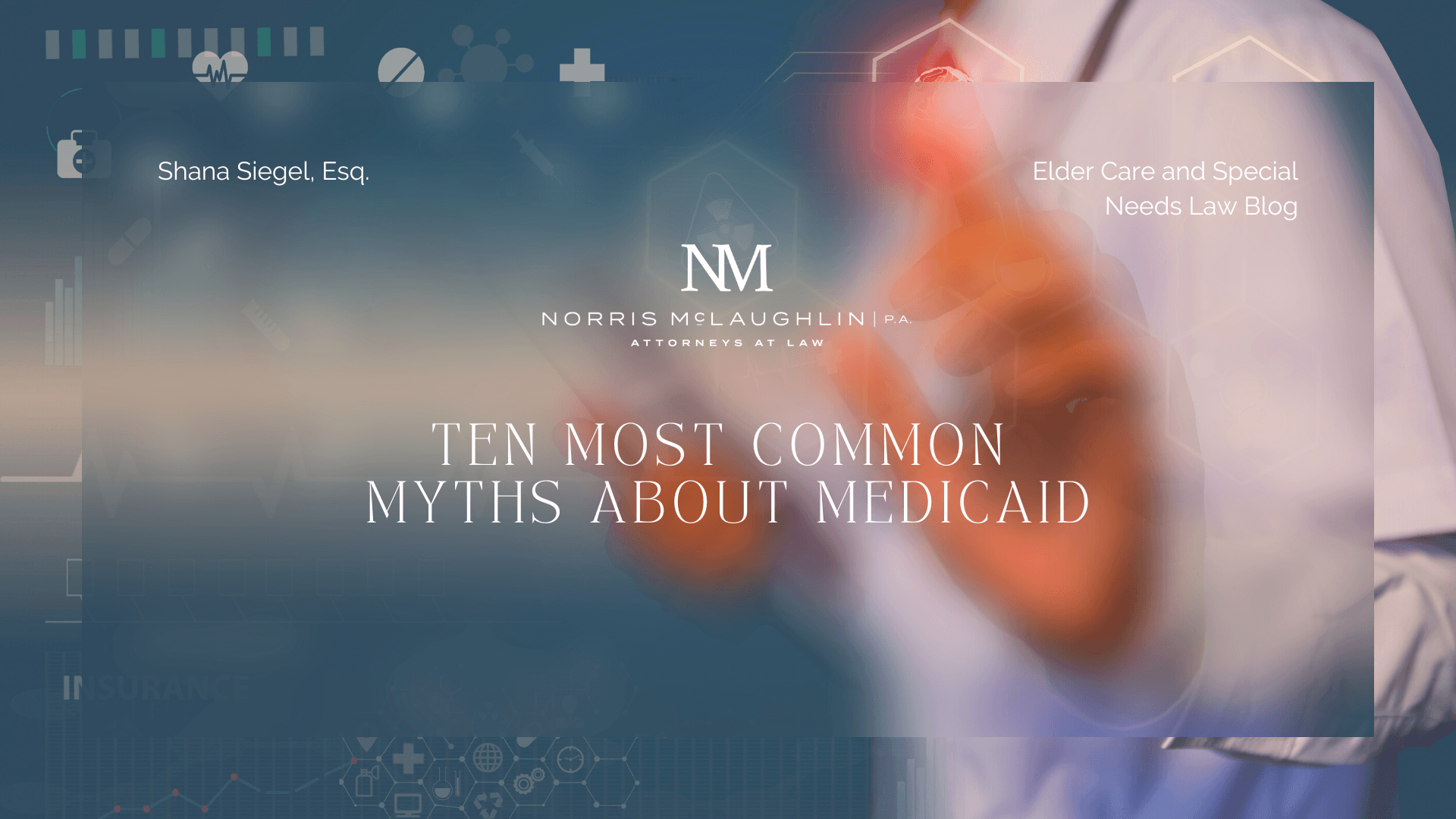What Do I Do If I Have No Close Family Members or Friends to Appoint as Power of Attorney or Executor? [VIDEO]
Shana Siegel, Chair of the Norris McLaughlin Elder Care & Special Needs Law Practice Group, answers your questions. This video addresses solo seniors and what they should do if they do not have close family members or friends to appoint as Power of Attorney or Executor.
Hi, I’m Shana Siegel and I’m the Chair of the Elder Care and Special Needs Group at Norris McLaughlin and today we’re talking about Powers of Attorney.
What do I do if I have no close family members or friends to appoint as power of attorney or executor?
That’s a common situation we often work with clients who are aging independently. We can help them draft documents so that their wishes are honored and protect them from exploitation and in some cases, we will serve as fiduciary and advocate for our clients.
About Peace of Mind
Peace of Mind is a video blog production series from the Elder Care & Special Needs Law Practice Group at Norris McLaughlin, P.A. For related topics and more information on Shana Siegel, Norris McLaughlin, or the legal services we offer regarding elder care and special needs, visit www.norriselderlaw.com.
If you have any questions about this post or any other related matters, please feel free to email Shana at ssiegel@norris-law.com.
About the Norris McLaughlin Elder Care & Special Needs Law Practice Group
In our office, we think a lot about solo seniors – older adults who live alone and have no immediate family. Right now we are working on an unfortunate case where multiple bad actors took advantage of a vulnerable woman, taking hundreds of thousands of dollars. Although their children and other close family members are sometimes the perpetrators against seniors, solo seniors are at greatest risk of exploitation. If you are concerned that you could be vulnerable to financial abuse, visit our blog post, "How Can I Protect Myself From Financial Exploitation as I Age?"
Our experienced elder care and special needs law attorneys go beyond traditional planning to address the needs of seniors and individuals with disabilities by assisting them in long-term care planning, guardianships and conservatorships, special needs advocacy, and end-of-life planning. We address the financial burden of the cost of care by advocating for our clients and maximizing their eligibility for government benefits, including Medicare, Medicaid, and Veterans’ benefits. We also assist our clients in locating appropriate care, as well as coordinating private and public resources to finance that care. Our services blend estate planning with long-term care planning, as we believe that estate planning is not just about what happens after you die, but how you will live.



